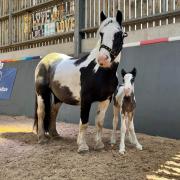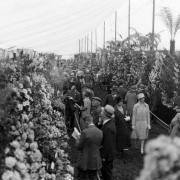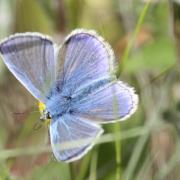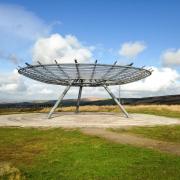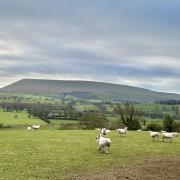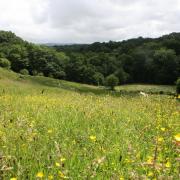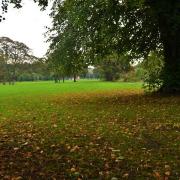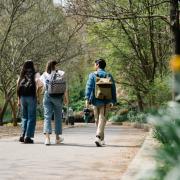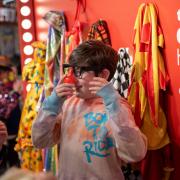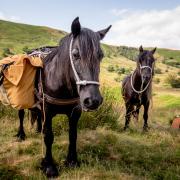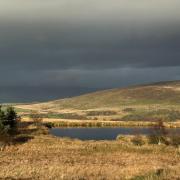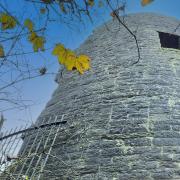If you struggle to capture the majesty of that stunning Lake District landscape, one man may have the answer

The Lake District is an area of exquisite beauty at every twist, turn, peak and valley. With the allure of ancient lakes and waterfalls galore - laced with ten kinds of weather in a day - it's also one of our most photographed locations.
But how can you explore the Lakes with your camera, while improving your photography and creating your own unique view?
This challenge can be overwhelming so we spoke to the expert team at Wilkinson Cameras, the leading independent photo retailer in the North West, together with professional photographer David Newton, who recently ran a workshop to help customers improve their skills in this epic playground.
'Photography has never been so popular, with the quality of images generated from phones as well as cameras at an exceptional level. But many of our customers are yearning to move past the holiday snapshots and really start to develop their skills,' said David Parkinson, MD at Wilkinson Cameras.

'Within our stores we are running an increasing number of courses and workshops, but customers really wanted to get out into the landscape, to get the most out of their cameras and to learn in the most beautiful and wild "studio" there is - the English Lake District.'
David Newton, a graduate in Marine Biology, with a Masters in Biological Photography and Imaging, has one of those jobs many of us dream of. Splitting his time between his base in London and a mobile life living out of his beloved camper van 'Brenda', David has built up an incredible photographic portfolio.
'One of the very first things to realise is photography is always about light. Without light you have no picture,' he said.
'While sunset and sunrise are obvious targets for beautiful light, great images can be captured at any time of day. Subjects such as texture can be enhanced by harsher light - and water, for instance, is a perfect reflector, so if it's a blue-sky day, embrace that too. Golden sunlight on water can be magical.
'Landscapes are not just about the bigger view. Longer lenses can pick out details which can have just as much impact and produce images that are different to what others 'see'.
'Knowing your kit is also crucial; new cameras will expand your picture taking ability, but not necessarily make you a better photographer.'
'There's no getting away from the fact that being in the right location at the right time for sunrise involves an early start - and in the Lakes we're often starting a hike in the dark with our head torches on.
'We often explore a location in advance to ensure we're in the right spot before sunrise the next day. And for sunsets, often the best light is actually up to an hour after the sun has set - so it's important to know your way home safely.
'Our workshops are a kind of 24-hour photo adventure - we get together to talk about kit, technique and get to know the cameras we are using. We're also lucky to have a selection of loan kit available including cameras and lenses, tripods and filters, ideal to try before they buy.
'Out on location, we'll work with the weather, what's looking good, and of course the light, to hone those skills. We often stay out until after the sun has set to capture the best light before heading back to our base in Keswick for dinner.
'The next morning tends to be a little more 'user friendly' with less of a hike first thing, but still visiting locations perfect for sunrise - putting those skills straight back into action.'
'There's such a vast range of subjects in this landscape, it can be overwhelming on your own - but the workshop is designed to help you "see" while exploring and capturing great images.
'Finally, back at base, we explore photo processing techniques, using images taken on the workshop, with each guest taking home a lovely large print of their own work, ready to frame and admire!'
Photography tips
Fully understand your camera, what it can do and how it works
If you want to shoot landscapes, invest in a good tripod.
Elevation! Before the tripod even comes out, think about the elevation of the camera this is crucial to the final composition - just a couple of inches up or down can make a massive difference to landscape photography.
Filters are not essential but exceptionally useful and will improve landscape features and expand creative options. For sunset and sunrise, filters really help to balance brightness.
Remember who you are taking pictures for. Take the pictures that make YOU happy - something that you could sit and just look at for an extended period of time.
Make sure you have all you need to stay safe on the hills ie head torch and map!
David's next trip is place on October 12 & 13. Full details: wilkinson.co.uk/landscapeweekend19. David's work can be seen at photopositive.co.uk
And don't forget to upload your best shots to our brilliant photography competition, sponsored by Wilkinson Cameras. You could win great prizes.




